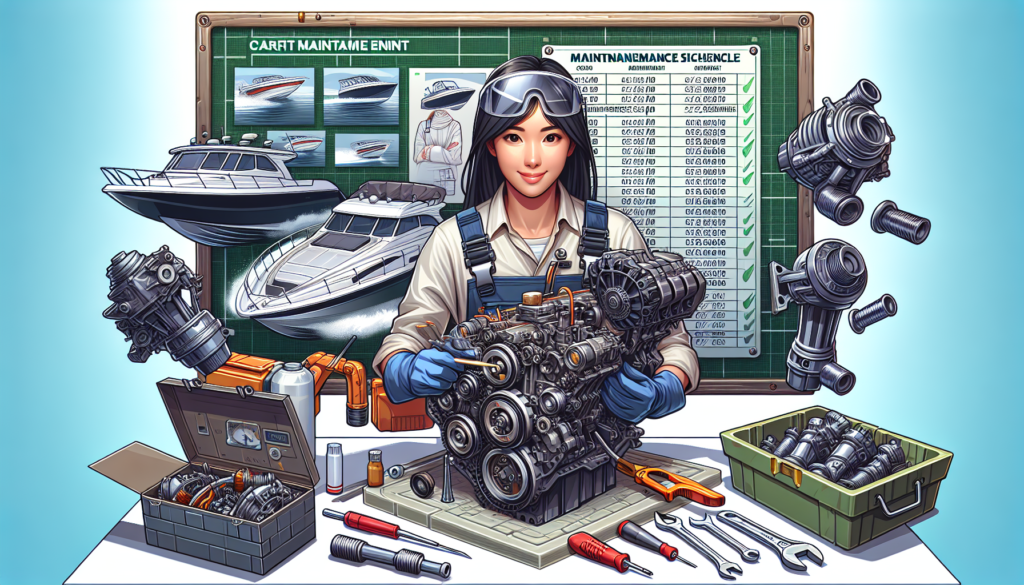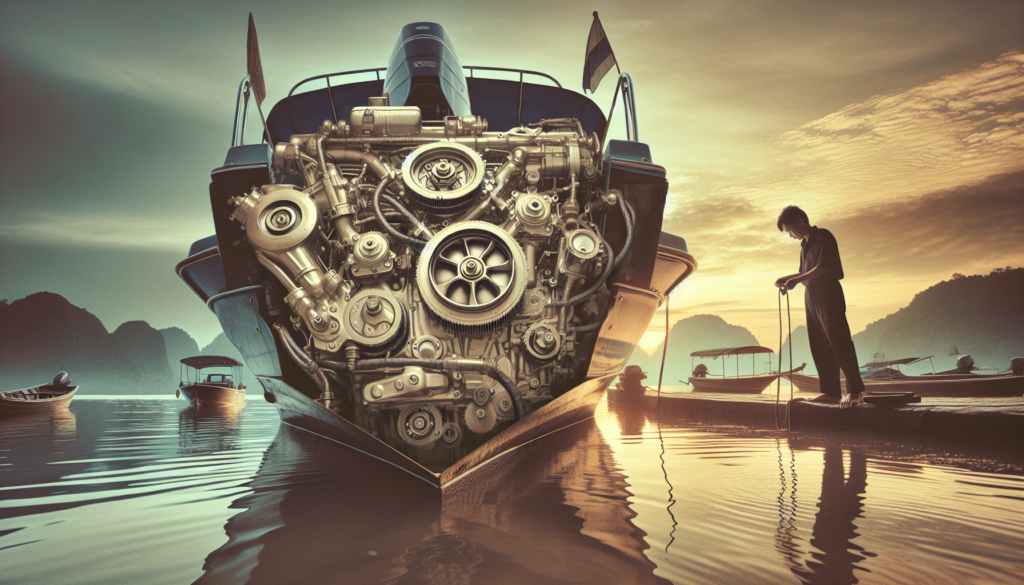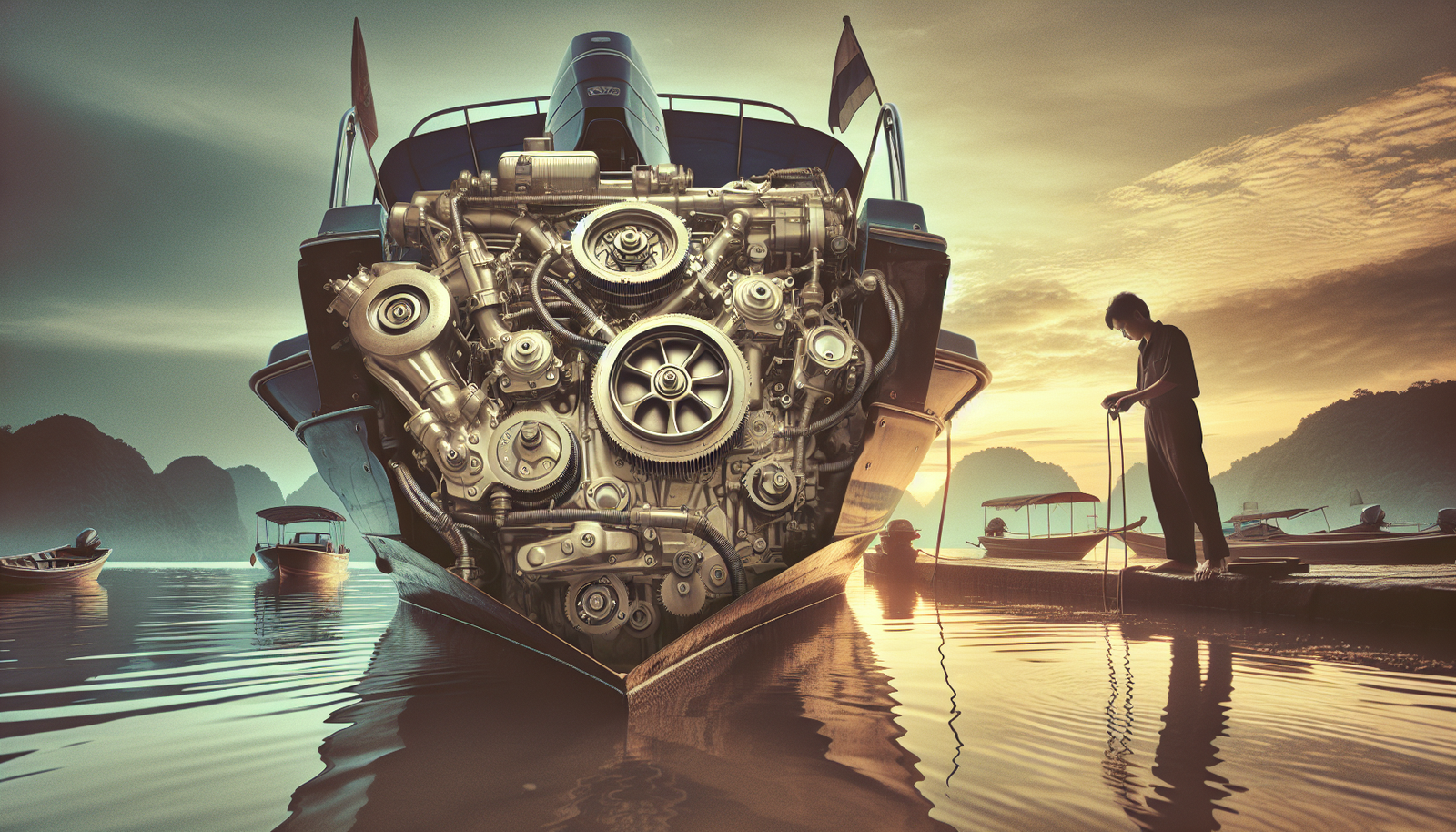Are you a proud boat owner looking to ensure your vessel offers reliable performance for many years to come? Navigating the crucial sphere of boat engine maintenance can be quite a challenge. This is why the “Best Boat Engine Maintenance Schedule for Long-Term Reliability” was crafted with you in mind. In this insightful guide, you’ll find a definitive timetable for your boat engine upkeep, designed to guarantee your vessel’s long-term usability. Here’s your chance to extend your boat’s lifespan, optimize its performance, and sail smoothly through calm and stormy waters alike. Trust us, you wouldn’t want to miss out on this sure route to achieving sailing success.

Understanding the Importance of Boat Engine Maintenance
Owning a boat is a rewarding experience, but to keep it in top shape, one must understand the importance of engine maintenance. Just like an automobile, your boat runs on an intricate engine system that requires upkeep to function effectively. Regular maintenance is key to maintaining the longevity of your boat and ensuring a smooth journey on the water.
Why maintain a boat engine
Maintaining your boat engine is crucial to ensuring it runs efficiently and reliably. Regular maintenance can identify potential issues before they lead to major problems and costly repairs. By taking care of your boat’s engine, you not only prolong its lifespan but you improve your boating experience with a smoother ride, better fuel efficiency, and reduced risk of accidents and breakdowns.
Impact of neglecting engine maintenance on boat lifespan
Neglecting engine maintenance can drastically reduce your boat’s lifespan. An unattended engine means undetected issues, which could escalate to major damages down the line. Furthermore, neglect could lead to a total engine failure, which not only shortens your boat’s life but could also put you in dangerous situations on the water.
The role of scheduled maintenance in improving engine performance
scheduled maintenance should be an important part of your boat upkeep routine. Regular checks and routine servicing can improve engine performance by detecting and fixing issues before they cause significant damage. Regular oil changes, filter replacements, and system checks can lead to improved fuel efficiency and an overall smoother and safer ride.
Boat Engine Maintenance Frequency
A maintenance schedule is mainly dictated by how frequently you use your boat and in what conditions. However, some tasks should be performed regardless of boat usage.
Regularly scheduled maintenance
Certain maintenance tasks should be performed at regular intervals regardless of boat usage. These can include oil and filter changes, flushing the engine, and checking hoses and other components.
Situational maintenance needs
In addition to regularly scheduled maintenance, there could be situational maintenance needs. Factors such as engine performance, weather conditions, storage, type of water you’re boating in (saltwater or freshwater), can dictate additional maintenance needs.
Impact of boat usage patterns on maintenance frequency
How frequently you use your boat, and for what, can also impact the maintenance schedule. More frequent use or high-performance use would typically require more frequent maintenance checks.
Daily Maintenance Checks
Your daily maintenance checklist will depend on how frequently you use your boat and in what conditions.
Checking engine oil and coolant levels
Before every outing, check your engine oil and coolant levels to ensure they are within the manufacturer’s recommended range. An oil change is recommended every 50 to 100 hours of use or at least once a year.
Inspecting the fuel system for leaks
Another daily maintenance task is inspecting the fuel system for leaks, this is crucial for the safety of you and the passengers. Check any fuel lines and connectors for cracks or leaks, and if any indications of fuel leakage are found, the issue should be promptly repaired.
Monitoring battery charge and cables
You should also check your battery charge and inspect battery cables for corrosion. Cables should be tightly fastened and free of any signs of damage.
Weekly or Bi-weekly Maintenance
For those who use their boats frequently, there are certain things that should be done on a weekly or bi-weekly basis.
Inspecting and replacing spark plugs
The spark plugs on your boat engine should be inspected regularly and cleaned or replaced as needed. Worn-out spark plugs can cause a decrease in your boat’s performance and fuel efficiency.
Checking outdrive and propeller
Key elements such as the outdrive and propeller should also be checked regularly to ensure they are functioning properly. The propeller should be checked for any damages and the outdrive for any leaks.
Reviewing the condition of bilge pumps and belts
Inspections of the bilge pumps and drive belts are also necessary. You should ensure the bilge pump is functioning properly and the belts are not showing signs of wear or damage.

Monthly Boat Engine Maintenance
For monthly maintenance, there are additional tasks that need to be tended to.
Changing engine oil and filters
Depending on your usage, you should perform monthly oil and oil filter changes. Regular oil changes can prolong the life of your engine and maintain peak performance.
Inspecting hoses, clamps, and belts
A regular inspection of the hoses, clamps, and belts is essential. These should be checked for cracks, leaks, or wear, and replaced as necessary.
Checking for corrosion and making necessary repairs
Particularly if you boat in saltwater, check for signs of corrosion and perform necessary repairs. Corrosion can severely damage your engine as well as other components of your boat.
Quarterly and Semi-Annual Maintenance
Every few months, more comprehensive checks and maintenance should be carried out.
Servicing the lower unit
Servicing the lower unit by changing the gear oil and checking the seals is important. This ensures there’s no water in the lower unit which could cause serious damage.
Inspecting and cleaning the carburetor
The carburetor should be inspected and cleaned as required. This helps to maintain optimal fuel efficiency and maximizes the performance of your engine.
Checking and replacing the fuel filter
Quarterly maintenance should also include checking and replacing the fuel filter. A clogged fuel filter can impact engine performance and potentially lead to engine failure.

Annual Maintenance Steps
Annually, you should perform comprehensive maintenance to ensure your boat is in optimal condition.
Winterizing your boat engine
If you’re in an area that undergoes freezing temperatures, winterizing your boat engine is critical to prevent damages from the freezing and thawing process.
Inspecting the exhaust system
An annual inspection of the exhaust system is recommended. Any leaks or issues with the exhaust system can lead to performance issues and can also pose safety hazards.
Servicing the electrical system
The electrical system should be serviced annually to prevent any electrical issues, which can lead to engine troubles and pose safety hazards.
Keeping Maintenance Records
Maintenance is not just about carrying out tasks, but also about keeping a record of what’s been done.
Benefits of keeping maintenance records
Maintaining up-to-date records helps you know when the next service should be carried out. It also helps you identify recurring issues or areas of the boat that require more attention. If you plan to sell the boat, these records will be of interest to the buyer.
How to properly record your maintenance activities
An effective maintenance record should include the date the maintenance task was carried out, the specific task, any replacements or repairs made, and any notes or issues identified during the process.
Using maintenance records to identify potential issues
Regularly revisiting your maintenance records can help you identify trends or recurring issues, which might indicate a larger problem that needs to be addressed.
Choosing Quality Parts for Maintenance
When carrying out maintenance, using quality parts is essential.
Importance of quality parts for long-term reliability
Quality parts will ensure your boat engine runs smoothly and will stand the test of time. Inferior parts may seem like a good way to save cash, but they could fail prematurely, cause further damage, or cause your boat to perform suboptimally.
Recommendations for top-quality maintenance parts
When purchasing maintenance parts, you should go for reputable brands with a good track record. Also, ensure the parts are the correct specification for your boat’s model.
Understanding the cost against value in boat engine parts
While quality parts might have a high upfront cost, they often provide better value in the long run due to extended durability. They offer less risk of failure and will save you the cost of frequent replacements and repairs.
Professional Boat Engine Service
There will be times when the scope of maintenance is beyond DIY and professional service will be required.
When to engage a professional for boat engine maintenance
If something seems off with your boat engine, such as unusual noises, smoke or performance issues, it’s time to engage a professional. In addition, any extensive repairs should be handled by a professional to ensure it’s done properly and safely.
Finding trustworthy boat maintenance service
Choosing a professional service should be made after careful consideration. Look for a service with positive customer reviews, skilled and certified technicians, and a track record of dealing with similar boat models and engines to yours.
Tips for working with professional boat maintenance services
Working with a professional service shouldn’t mean completely hands-off. Ask questions, understand what the service entails, and check the replaced parts for better understanding. Ensure the service is transparent about everything they do and charges are clearly explained.
Boat engine maintenance may seem overwhelming at first but with a systematic approach, a schedule, and the right tools, it becomes much less of a daunting task. Regular maintenance will ensure your boat is always ready to set sail and will offer years of service.

